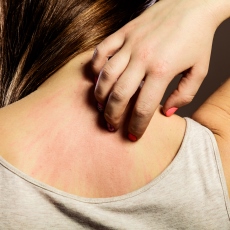
What does your skin do?
Your skin is your body's largest organ. It covers the entire outside of your body. There are many ways that your skin protects your body and helps keep you healthy. For example, it:
- Holds body fluids in, which helps prevent you from getting dehydrated
- Keeps out harmful germs, which helps prevent infections
- Helps you feel things like heat, cold, and pain
- Helps control your body temperature
- Makes vitamin D when the sun shines on it
- Shields your body against heat and light
What problems and conditions can affect your skin?
There are many different problems and conditions which can affect your skin. Some of them can cause uncomfortable symptoms, such as itching, burning, redness, and rashes. They might also affect your appearance. Some of the more common skin conditions include:
- Skin Conditions (National Library of Medicine)What does your skin do? Your skin is your body's largest organ. It covers the entire outside of your body. There are many ways that your skin protects your ...
- Skin Infections (National Library of Medicine)What are skin infections? Your skin is your body's largest organ. It has many different functions, including covering and protecting your body. It helps keep germs out. ...
- Skin Aging (National Library of Medicine)Your skin changes as you age. You might notice wrinkles, age spots and dryness. Your skin also becomes thinner and loses fat, making it ... heal, too. Sunlight is a major cause of skin aging. You can protect yourself by staying out ...
- Rashes (National Library of Medicine)... rash is an area of irritated or swollen skin. Many rashes are itchy, red, painful, and irritated. ... also lead to blisters or patches of raw skin. Rashes are a symptom of many different medical ...
- Skin Pigmentation Disorders (National Library of Medicine)Pigmentation means coloring. Skin pigmentation disorders affect the color of your skin. Your skin gets its color from a pigment called melanin. Special cells in the skin make melanin. When these cells become damaged or ...
- Skin Cancer (National Library of Medicine)Skin cancer is the most common form of cancer in the United States. The two most common ... face, neck, hands, and arms. Another type of skin cancer, melanoma, is more dangerous but less common. ...
- Skin Biopsy What is a skin biopsy? A skin biopsy is a procedure that removes a small sample of skin for testing. The procedure can help diagnose ... easier to treat. Why do I need a skin biopsy? You may need a skin biopsy if ...
- Skin Cancer Screening What is a skin cancer screening? Cancer screening is checking for signs of cancer before you have any symptoms. A skin cancer screening includes looking at ...
- Allergy Skin Test What is an allergy skin test? An allergy is an overreaction, also known as a hypersensitivity, of the body's immune system . Normally, your immune system works to fight ...
- A skin graft is a piece of healthy skin removed from one area of your body to repair damaged or missing skin somewhere else on your ...



